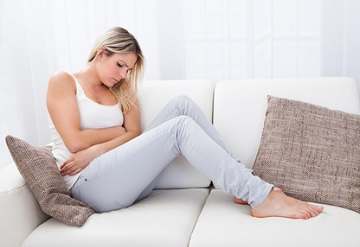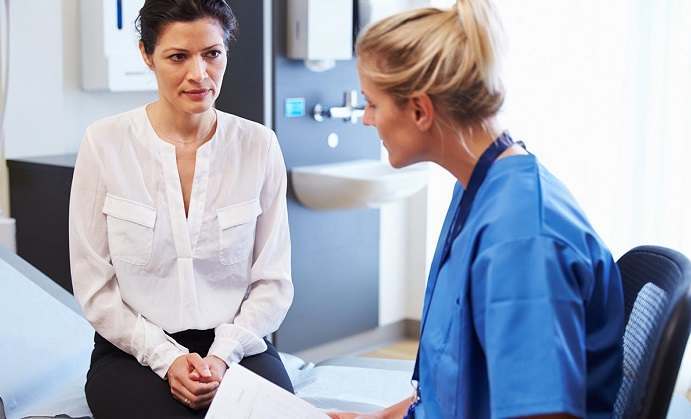Perimenopause is a gradual stage in a woman’s life where her body is transitioning to the stage of full menopause. This stage begins around the mid-40s, though it differs from woman to woman depending on individual genetics and the lifestyle of a person. This stage is characterized by hormonal imbalances or fluctuations, especially estrogen and progesterone. The length of time between monthly periods may start becoming lengthened and or periods may become rare. When one goes for one full year without periods, it is a clear indication that she has reached full menopause.
Pathophysiology of Perimenopause
 During this stage, there is the irregular production of estrogen from the ovaries. Estrogen is the one that is responsible for fat distribution in the body, the growth and development of breasts and the nourishing of the genitals. It also regulates the menstrual cycle and healing of the endometrium when it works together with progesterone. Estrogen improves libido and sexual desire, so when it diminishes, all these functions are affected in the woman’s body.
During this stage, there is the irregular production of estrogen from the ovaries. Estrogen is the one that is responsible for fat distribution in the body, the growth and development of breasts and the nourishing of the genitals. It also regulates the menstrual cycle and healing of the endometrium when it works together with progesterone. Estrogen improves libido and sexual desire, so when it diminishes, all these functions are affected in the woman’s body.
Symptoms of the Perimenopause Stage
- Menstrual irregularities. Because of the altered hormonal release, you might find that the duration of your monthly cycles is extended. Cycles could be as long as sixty days, ninety days or even longer. The duration between periods extends as one continues to age and it will reach a point where periods will stop completely.
- Hot flushes. These are when a woman experiences burning sensations and the feeling of getting very hot. This most likely happens at night. They could be mild to severe depending on the nature of the person. Hot flushes can impair the sleep comfort of a person.
- Night sweats, especially to areas above the abdomen, are most likely going to occur. This is followed by mood changes where a woman could start feeling depressed and more anxious than usual.
- Vaginal dryness. This symptom occurs along with a lack of libido which both lead to low sexual desire. Due to estrogen reduction, one could easily undergo bone degeneration but this is very rare.
- Fertility is reduced during this period, but until you stop having a period completely for a full year, there is still the risk of falling pregnant. If one falls pregnant during this stage, there is a risk of ectopic or multiple pregnancy.
Abdominal Pain During Perimenopause
 Just like when one experiences abdominal pain during menstruation, it could also happen during the perimenopause stage. This is normal and it is caused by the same elements that result in abdominal pain during periods. The shedding of the endometrium is what causes this pain and it could be mild to severe.
Just like when one experiences abdominal pain during menstruation, it could also happen during the perimenopause stage. This is normal and it is caused by the same elements that result in abdominal pain during periods. The shedding of the endometrium is what causes this pain and it could be mild to severe.
Some people use painkillers to treat the contracting pain of the uterus but this pain is normally self-limiting.
Hot flashes, monthly period irregularities, and cramps can be effectively managed through the use of oral contraceptives or birth control pills. Hormonal therapy can be used in cases where the symptoms are severe and compromising one’s life like in the case of bone degeneration. NSAIDS like acetaminophen and ibuprofen can also be used to treat the pain associated with these symptoms. Although these irregularities are normal during this stage of life, serious medical interventions should be taken if there is severe bleeding that lasts more than eight days or if there is prolonged pain that is not responding to medication.
Do you want to find an effective Menopause treatment? Check out our top rated Menopause products











